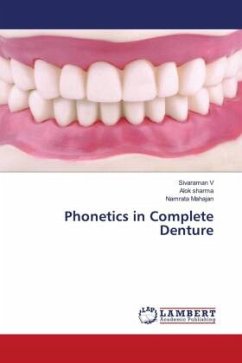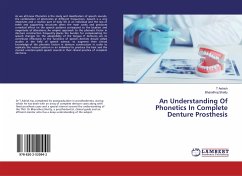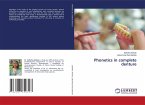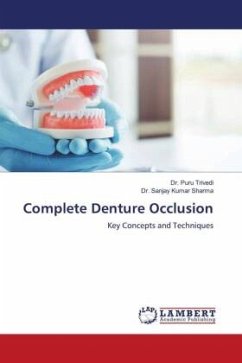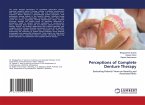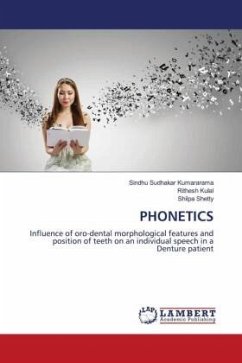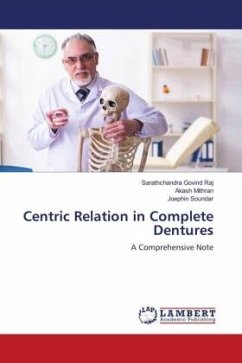Sound is formulated into meaningful speech by the articulation of the tongue, lips, teeth, alveolus, hard palate and frenum. Denture insertion can lead to disturbed pronunciation. The phonetic adaptation of a patient with complete denture is achieved by selection and placing of the artificial teeth; thickness of maxillary prosthetic base in the frontal area; optimal space for the tongue; individual adaptation capacity; patients' sound recognizing capacity. Phonetics and proper functioning of denture can be improved by guiding fabrication of denture with the help of patient's phonetics. Verification of proper phonetics in try-in stage and after denture delivery should be done with utmost care. Post insertion follow up should be done. Phonetics is a fundamental feature of prosthetic rehabilitation and, if not adequately considered in the treatment plan for a fixed or removable reconstruction, satisfactory results cannot be obtained. This book provides an insight on the importance of phonetics in complete denture with recent advances in the field.
Bitte wählen Sie Ihr Anliegen aus.
Rechnungen
Retourenschein anfordern
Bestellstatus
Storno

